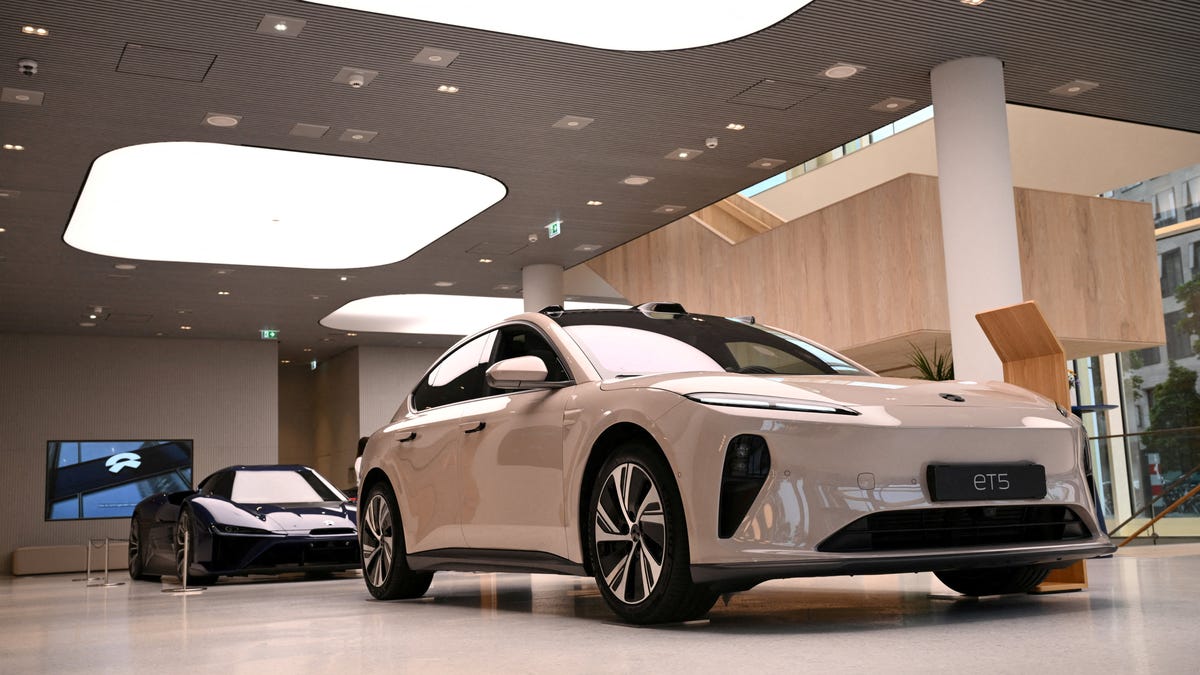The regulatory arm of the European Union said Wednesday that it would move to impose new tariffs to stop the “flood” of Chinese electric vehicles into Europe.
The European Commission said it would put a range of tariffs on imports of Chinese EVs to the continent, naming a 17.4% duty on cars made by BYD, a 20% tax on Geely, and tariffs as high as 38.1% for vehicles made by SAIC. Other battery EV makers that cooperated with the Commission will be slapped with duties averaging 21%, while those that declined to work with regulators will be hit with 38.1% tariffs.
The new duties will be added on top of the E.U.’s existing 10% levies on battery EVs.
“As part of its ongoing investigation, the Commission has provisionally concluded that the battery electric vehicles value chain in China benefits from unfair subsidisation, which is causing a threat of economic injury to EU BEV producers,” the European Commission said in a statement. “The investigation also examined the likely consequences and impact of measures on importers, users and consumers of BEVs in the EU.”
If discussions with Beijing do not lead to a solution, the initial measures will take effect on July 4, while definitive actions will be imposed within the following four months. Just one BEV maker, Tesla — Elon Musk’s American company, which operates a factory in Shanghai and sells its EVs in China — may receive an individually calculated duty rate at the definitive stage, per the company’s request.
The 27-member government bloc began investigating Beijing’s subsidies for EVs made by domestic manufacturers last September, alleging that it gives Chinese automakers an unfair advantage over others in the global market and “distorts” the market. Chinese car exports have surged in recent years, with about 60% of global EV sales coming from its auto industry, according to the International Energy Agency.
With the new tariffs, the E.U. joins the United States, which last month said it plans to quadruple duties on EV imports from China later this summer. The Biden administration is also raising tariffs on on semiconductors, lithium-ion batteries, solar cells, and some steel and aluminum products to tamp down on competition.
China’s Commerce Ministry has said the U.S. tariffs will “seriously impact the atmosphere of bilateral cooperation” and threatened to “take resolute measures to defend its rights and interests. A affiliated business group told the state-owned Global Times that tariffs of up to 25% could be raised on imported vehicles.
But Europe’s new duties won’t affect Chinese carmakers’ plans to invest in the continent, China Passenger Car Association Secretary General Cui Dongshu said Tuesday.
“The traditional car-making industry plays a big part in generating employment in Europe. … Chinese firms won’t take aggressive measures or low-pricing moves to disrupt the stability of employment in Europe,” Cui said, in remarks reported by Reuters.
Several Chinese EV makers already or plan to assemble cars in Europe, including Chery Automobile, which has a plant in Spain and has been talks with Italy. And Hungary last year became the first European country to sign on to Beijing’s flagship infrastructure and trade program, and several of China’s largest battery makers aim to build factories there. BYD plans to build a new factory in Hungary as the center of its future European operations.
Some European carmakers are also owned by Chinese companies. Geely, for example, owns both Swedish automakers Volvo and Polestar. Volvo recently started shifting production of its China-made EVs to Belgium to preemptively dodge the new tariffs.
Stellantis CEO Carlos Tavares has said that Chinese automakers are on track to sell 1.5 million cars in Europe, or 10% of the market and up to 10 assembly plants worth of production. His company is working with China’s Leapmotor to sell cars in nine European countries this year, with plans to build the vehicles in Poland.

